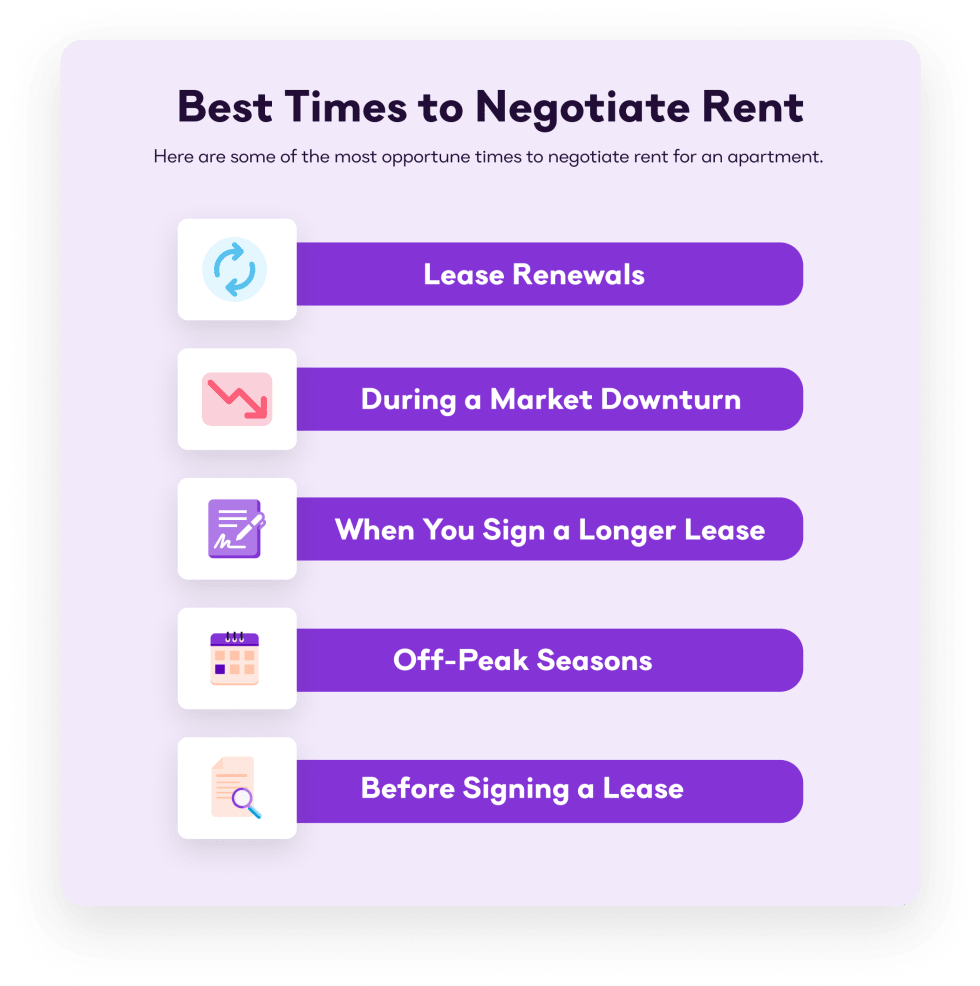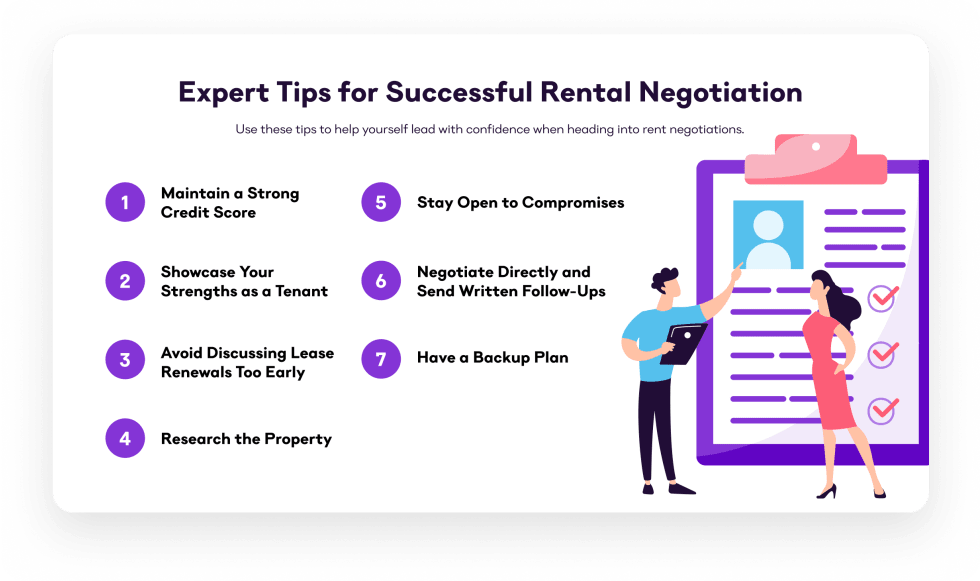In an increasingly competitive rental landscape, where soaring demand often outstrips supply, the prospect of negotiating rent might seem like a pipe dream. Many prospective tenants simply accept the asking price, fearing that any attempt to haggle will lead to immediate rejection, especially in a "hot market." However, this passive approach leaves significant money on the table and often means settling for less than ideal terms.
Negotiating rent isn’t just about demanding a lower price; it’s about strategically positioning yourself as the most desirable tenant, understanding the landlord’s motivations, and leveraging every possible advantage to secure the best possible deal. Like a seasoned investor analyzing market trends, a professional tenant approaches the rental process with diligence, preparation, and a clear understanding of their value.
This comprehensive guide will equip you with the strategies and insights needed to negotiate rent like a pro, even when the market feels stacked against you.
Why Negotiate Rent, Even in a Hot Market?
The common misconception is that in a hot market, landlords hold all the cards. While demand is high, landlords and property managers still face costs and risks that a good tenant can mitigate. Understanding these factors provides the foundation for your negotiation strategy:
- Tenant Turnover Costs: Every time a tenant moves out, landlords incur significant expenses:
- Vacancy Loss: Lost rent for the period the unit sits empty.
- Marketing & Advertising: Costs to list the property.
- Showing & Screening: Time and resources spent on prospective tenants.
- Cleaning & Repairs: Costs to prepare the unit for the next tenant.
- Administrative Fees: Paperwork, background checks, lease preparation.
- These costs can easily add up to one or more months’ rent.
- Desire for Stability: Landlords prefer long-term, reliable tenants who pay on time, maintain the property, and don’t cause issues. A slightly lower rent for a proven, stable tenant is often more valuable than a higher rent from a risky or short-term one.
- Market Fluctuations: Even in a hot market, specific properties might have been on the market longer than anticipated, or the landlord might be eager to fill a vacancy quickly to avoid further losses.
- Non-Monetary Value: A tenant who is easy to communicate with, takes care of the property, and is proactive about maintenance is a valuable asset that goes beyond the monthly rent figure.
The Mindset of a Pro Negotiator
Before diving into tactics, cultivate the right mindset. This isn’t an adversarial battle; it’s a collaborative effort to find a mutually beneficial agreement.
- Confidence, Not Arrogance: Believe in your value as a tenant.
- Preparedness is Power: Knowledge about the market and your own finances is your strongest tool.
- Flexibility and Creativity: Be open to negotiating terms beyond just the monthly rent.
- Respectful Communication: Maintain a polite, professional, and positive tone.
- Patience and Persistence: Negotiation can take time.
- Know Your Walk-Away Point: Understand your limits and when to disengage.
Phase 1: Pre-Negotiation – Building Your Leverage
The most effective negotiations happen before you even speak to a landlord. This phase is about gathering information and solidifying your position.
1. Master Your Market Research
Knowledge is your ultimate leverage. Before you even look at properties, become an expert on the local rental market.
- Comparable Properties (Comps):
- What to Look For: Find at least 3-5 similar units (same number of bedrooms/bathrooms, similar square footage, comparable amenities, same neighborhood, recent listings) and note their asking prices.
- Where to Find Them: Online listing sites (Zillow, Apartments.com, Realtor.com, Craigslist), local property management websites, local real estate agents.
- Analyze Price History: See if the rent for your target property or similar ones has been adjusted recently. Has it dropped? This indicates the landlord might be flexible.
- Average Days on Market (DOM):
- What it Tells You: How long properties typically stay vacant. If a unit has been listed for significantly longer than average, the landlord might be more eager to negotiate. If it’s flying off the market, your leverage on rent might be lower, but other terms could still be in play.
- How to Find It: Some listing sites provide this data, or you can track new listings versus rentals.
- Vacancy Rates:
- Significance: High vacancy rates in a specific area or building give you more leverage. Low rates mean more competition.
- How to Find It: Local real estate reports, property management companies, or by observing multiple vacant units in a building.
- Neighborhood Specifics: Understand which areas are in higher demand, what local amenities are available (public transport, parks, shops), and how they affect rent.
2. Assess Your Value as a Tenant
Landlords are looking for low-risk, high-quality tenants. Highlight these attributes to increase your appeal.
- Impeccable Credit Score: A high credit score (700+) indicates financial responsibility. Obtain your free credit report in advance and rectify any errors.
- Strong Rental History: Provide references from previous landlords who can attest to your reliability, cleanliness, and timely payments. If this is your first rental, offer additional guarantors or a larger security deposit.
- Stable Employment & Income: Demonstrate a steady income that comfortably covers the rent (typically 3x the monthly rent). Provide recent pay stubs, employment verification letters, or bank statements.
- Responsible & Tidy: Mention your commitment to maintaining the property. Offer to provide photos of your current well-kept home, if applicable.
- No Pets (or Well-Behaved Pets): If you have pets, ensure they are well-behaved, vaccinated, and you have references for them. Offer a pet resume or an increased pet deposit/rent.
- Clean Background Check: Be confident that you have no criminal history that would raise red flags.
3. Financial Preparedness
Show that you’re ready to move forward swiftly and smoothly.
- Proof of Funds: Have documentation ready for first month’s rent, security deposit, and any other required fees.
- Pre-Approved Application: Have all necessary documents organized: ID, pay stubs, bank statements, references. A complete, organized application makes you look professional and serious.
4. Identify Your Priorities and Deal Breakers
Before you negotiate, know what you truly want and what you can’t live without.
- What’s Most Important? Is it the absolute lowest rent, a specific amenity, lease length, or move-in date?
- Your "Walk-Away" Rent: Determine the maximum rent you’re willing to pay for a property.
- Negotiable vs. Non-Negotiable: Understand what flexibility you have.
Phase 2: During Negotiation – The Art of Persuasion
Once you’ve done your homework, it’s time to engage with the landlord or property manager.
1. Timing is Everything
- When to Initiate:
- Before Applying (Best): If the landlord seems open, you can ask about flexibility before submitting your application. This shows you’re serious but also looking for the right fit.
- During Application (Good): Include your proposed terms (e.g., slightly lower rent, specific concession) with your application, clearly stating it as a conditional offer.
- Upon Renewal (Excellent): This is often the easiest time to negotiate, as the landlord already knows your value as a tenant.
- Early Bird Advantage: In a hot market, being one of the first applicants for a desirable unit can give you a slight edge, especially if your offer is strong.
2. Make a Stellar First Impression
- Professionalism: Dress neatly, be punctual for showings, and communicate clearly and courteously.
- Enthusiasm (but not desperation): Express genuine interest in the property and the neighborhood.
- Prepared Documents: Have your application, references, and supporting financial documents ready to hand over.
3. Crafting Your Offer/Counter-Offer
Don’t just say, "Can you lower the rent?" Present a well-reasoned, justified proposal.
- Start with Value: Begin by reiterating your strong qualifications as a tenant (excellent credit, stable job, great references).
- Reference Your Research: "I noticed comparable units in this building/neighborhood are renting for around $X, and given the [mention a specific point like lack of a certain amenity, or unit being on the market for a bit longer], I was hoping for a rent of $Y."
- Be Specific: Instead of asking for "less rent," propose a specific amount (e.g., "$100 less per month").
- Anchor Your Offer: If you want $1,900 for a $2,000 unit, you might ask for $1,850 to leave room for negotiation.
- Frame it as a "Win-Win": "If we could agree on $Y, I’d be happy to sign a 14-month lease to provide you with longer-term stability."
4. What to Negotiate Beyond Rent (Concessions)
In a hot market, direct rent reduction might be difficult. This is where creative negotiation shines. Focus on concessions – benefits that add value without directly lowering the published rent.
- One-Time Credits:
- First Month Free: Equivalent to a significant discount over the lease term.
- Reduced Security Deposit: Lowers your upfront costs.
- Move-in Bonus: A one-time credit towards moving expenses.
- Property Upgrades/Repairs:
- Fresh Paint: Especially if the unit looks dated.
- New Appliances: If existing ones are old or inefficient.
- Carpet Cleaning/Replacement: If worn or stained.
- Minor Repairs: Fixing a leaky faucet, sticky door, or broken blind before you move in.
- Amenity Waivers/Reductions:
- Waived Pet Fees/Pet Rent: Can save hundreds annually.
- Free Parking Spot: If parking is usually an extra charge.
- Waived Amenity Fees: For gyms, pools, etc.
- Lease Term Flexibility:
- Longer Lease (18-24 months): Landlords love stability. Offer a longer term in exchange for a slightly reduced monthly rent or a specific concession.
- Shorter Lease (e.g., 6-9 months): If you need flexibility, but this often comes at a premium, so you might negotiate other terms to offset it.
- Utilities/Services:
- Include Basic Utilities: Ask if water, trash, or even internet could be included.
- Early Move-In: If the unit is vacant, ask for a few days of free rent to move in early.
5. Handling Objections and Rejection
- Listen Actively: Understand the landlord’s concerns. Is it simply policy, or do they have specific reasons?
- Reframe Your Offer: If they won’t budge on rent, pivot to concessions. "I understand you can’t lower the rent, but would you be willing to waive the pet fee or offer a free parking spot?"
- Highlight Your Value (Again): "As a tenant with an excellent credit score and stable job, I believe I represent a low-risk investment for you. The stability I offer could offset a small concession."
- Don’t Get Emotional: Keep your tone calm and professional.
6. Know When to Walk Away
This is perhaps the hardest, but most crucial, part of negotiation. If the landlord is unwilling to budge on anything important to you, and you have other viable options, be prepared to walk away. Desperation weakens your position. Having alternatives (even if you’re not thrilled about them) gives you true power.
Phase 3: Post-Negotiation – Sealing the Deal
Congratulations! You’ve reached an agreement. Now, ensure it’s properly documented.
1. Get Everything in Writing
- No Verbal Agreements: Every single negotiated term, no matter how small, must be explicitly written into the lease agreement or an addendum.
- Clarity: Ensure the language is clear, unambiguous, and reflects exactly what was agreed upon (e.g., "Landlord agrees to provide one month’s free rent, applied to the second month of tenancy," or "Pet fee of $50/month waived for the duration of the lease").
2. Review the Lease Carefully
- Read Every Clause: Don’t skim. Understand all terms, including rent increases, maintenance responsibilities, pet policies, early termination clauses, and renewal options.
- Check for Discrepancies: Ensure the written lease matches all your negotiated terms. If anything is missing or incorrect, point it out before signing.
- Ask Questions: If anything is unclear, ask for clarification.
Special Considerations for Hot Markets
While the general principles apply, a hot market demands a slightly different emphasis:
- Speed is Critical: Good properties go fast. Be prepared to act quickly with a complete application once you find a suitable unit.
- Focus on Being the "Ideal Tenant": In a competitive environment, your impeccable qualifications might be your strongest negotiation tool, more so than direct price haggling. Landlords will choose the path of least resistance.
- Prioritize Concessions over Rent Reduction: Direct rent reductions are harder to achieve. Focus heavily on getting free months, waived fees, or desired upgrades. These often have a high perceived value for you but a lower direct cost for the landlord.
- Be Prepared to Compromise: You might not get every single thing you want. Identify your top 1-2 priorities and be flexible on the rest.
- Leverage Lease Length: Offering a longer lease (e.g., 18 months instead of 12) can be a significant advantage for a landlord and might unlock concessions.
- Look for "Off-Market" Deals: Sometimes properties are rented by word-of-mouth, through local community groups, or by private landlords who prefer to avoid listing fees. These can offer more flexibility.
Conclusion: Empower Yourself Through Strategic Negotiation
Negotiating rent, even in a red-hot market, is not just possible; it’s a critical skill for any financially savvy individual. By adopting the mindset of a professional, diligently preparing with market research and self-assessment, and creatively exploring concessions, you can significantly impact your bottom line and secure a living situation that truly meets your needs.
Don’t let the fear of rejection or the perceived power of a hot market deter you. Approach the process with confidence, respect, and a strategic plan. You are a valuable tenant, and by effectively communicating that value, you can transform the daunting task of finding a rental into a successful negotiation that benefits both you and your future landlord. Take control, save money, and live like a pro.



